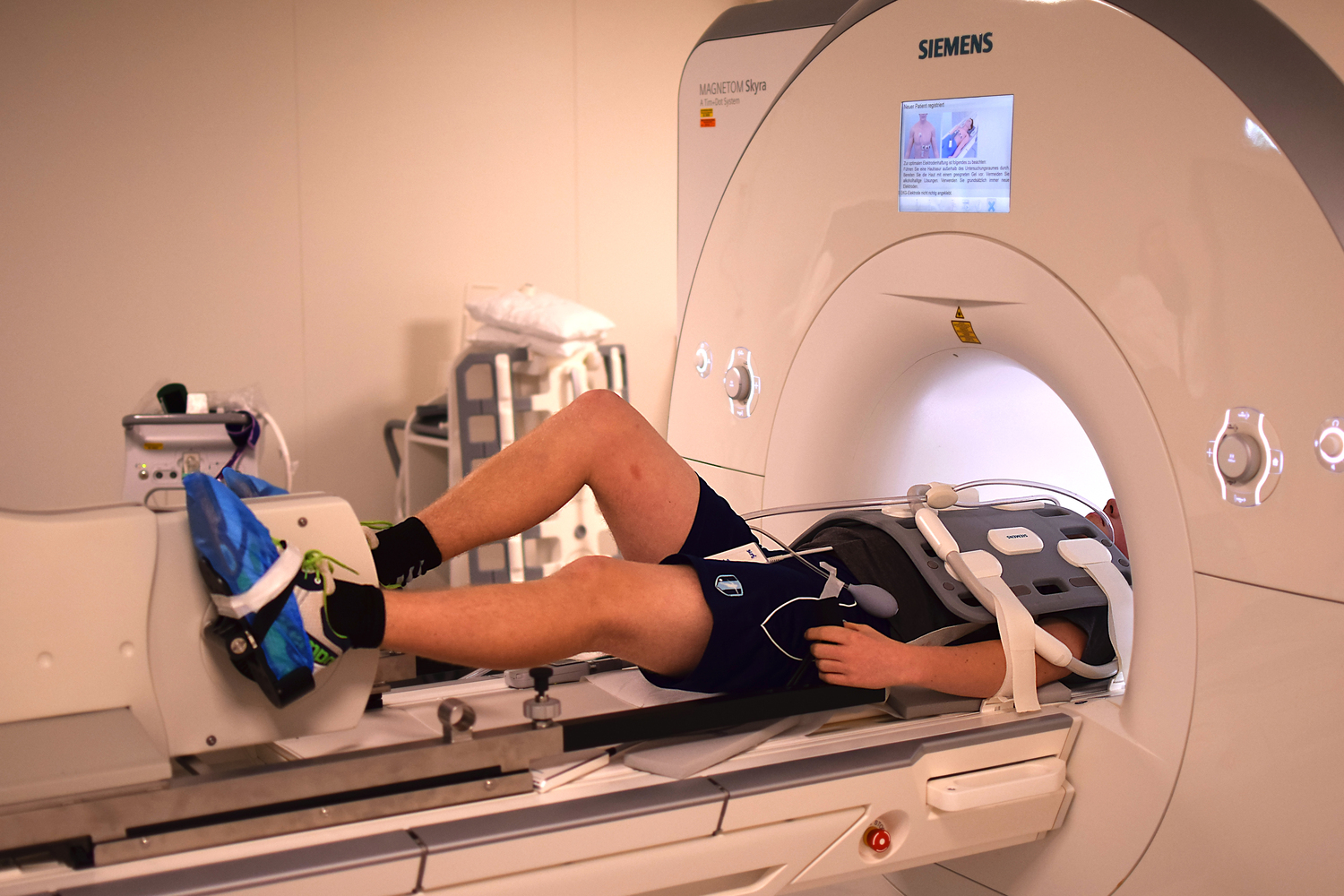HFpEF-stress-DZHK17
Study information
HFpEF-stress-DZHK17
- Recruiting status
-
Study completed
- Recruitment start
08/2017
- Patients
70
- Clinical Trials Registration
- Category
Early clinical study
- DZHK Funding
EUR 316.183,18
Operative contact
Main study centre - Sören Backhaus, MD
soeren.backhaus@med.uni-goettingen.de
Cardiovascular magnetic resonance real time exercise stress testing in heart failure with preserved ejection fraction (HFpEF-stress-DZHK17)
Real-time magnetic resonance imaging (MRI) is intended to diagnose diastolic heart failure early and reliably. In heart failure with preserved ejection fraction (HfpEF), the left ventricle is stiff and is not adequately filled with blood. With currently used non-invasive methods, such as ultrasound, it is difficult to measure and is often detected late.
Real-time MRI makes it possible for the first time to perform MRI measurements on the heart under stress. Physical activity causes the heart to beat faster. There is less time to fill the left ventricle with blood. The insufficient filling of the heart, as it occurs with HFpEF, thus becomes clearer. In the study, patients must therefore exercise physically during the MRI measurement. The heart rate, which should reach 100 to 110 beats per minute, is measured to illustrate the filling problem. Patients can continue to breathe during this stress examination and do not have to hold their breath during the measurements, as they have done up to now. This is made possible by an unprecedented acceleration, in which entire films of heart movement are recorded in one or two heartbeats.
The technology will be used to define MRI parameters that can replace hemodynamic right ventricular stress testing. This is performed using a heart catheter and is one of the most sensitive and specific diagnostic options for HFpEF. The MRI examination is also performed at rest and compared with the results of invasive hemodynamics, also at rest and under stress.
For patients, MRI would have the advantage that it is non-invasive, does not cause radiation exposure and still provides high-resolution, detailed images for precise diagnosis. The HFpEF-stress-DZHK17 study is headed by Andreas Schuster, MD at the DZHK Göttingen site.

Publications
Exercise Stress Real-Time Cardiac Magnetic Resonance Imaging for Noninvasive Characterization of Heart Failure With Preserved Ejection Fraction: The HFpEF-Stress Trial. Backhaus, SJ. et al. Circulation. 2021 Apr 13;143(15):1484-1498. doi: 10.1161/CIRCULATIONAHA.120.051542.
All publications of this trial can be found here
Principal Investigators
Principal investigator: Andreas Schuster (Göttingen)
Press releases and news

Diastolic heart failure: Non-invasive diagnosis with real-time magnetic resonance imaging can be an alternative to invasive cardiac catheterisation (Study HFpEF-stress-DZHK17)
Diastolic heart failure can be reliably detected with a newly developed magnetic resonance imaging...
Study recruitment is available in these cities
The map only displays recruitment locations within Germany.
